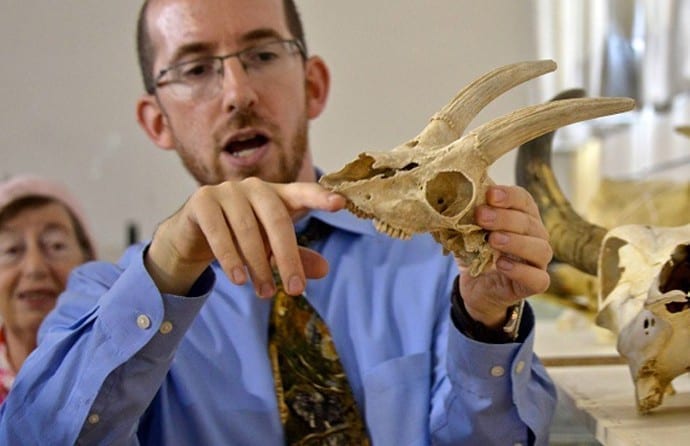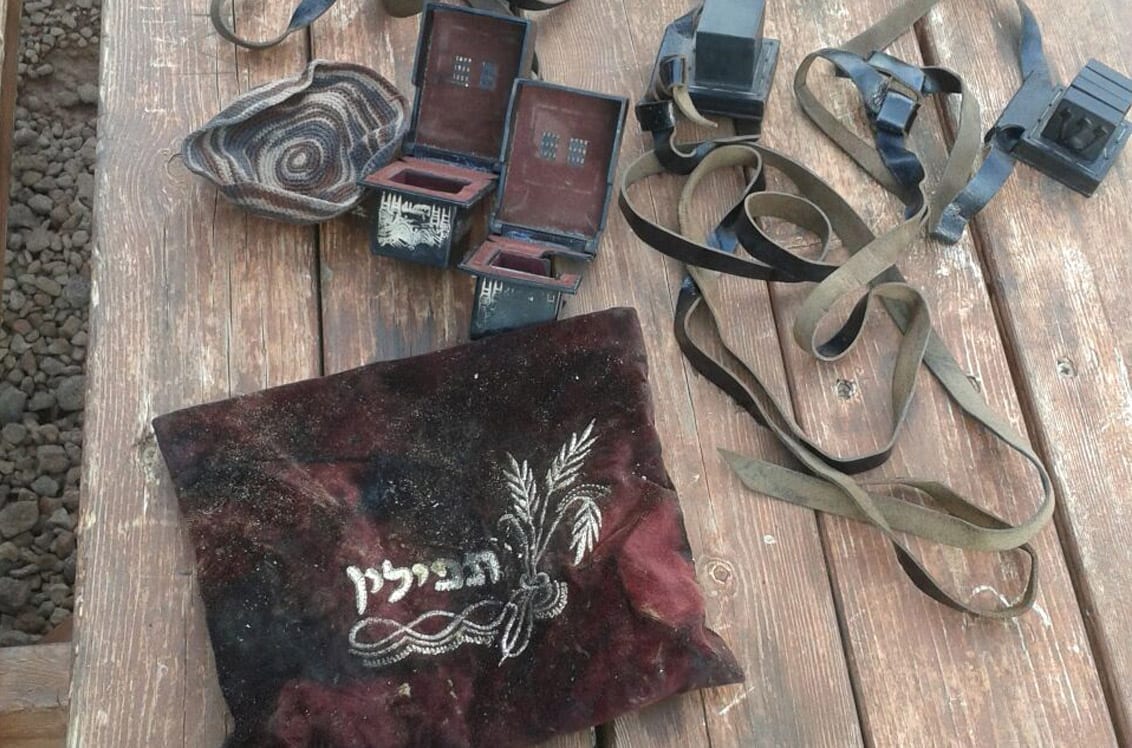In 2015, for the first time in many centuries, the city of Aleppo in Syria is empty of Jews. The two elderly Jewish women who remained in Aleppo, were smuggled out in a secret operation and are now residing in Ashkelon, according to a report by the veteran British Jewish newspaper, the Jewish Chronicle.
The Chronicle reported in detail how a businessman named Motti Kahana, a former Israeli who grew up in Jerusalem and now lives in the United States, was behind the operation to rescue the last Jewish women. Kahane has in the past funded operations to rescue Jews. He got involved after he became aware of the dire situation in Syria, and especially when he learned that the terrorist organization ISIL was encircling the city.
The Goal: to leave Syria
A few months before the rescue operation, the Syrian Jewish family was told that a wealthy businessman from the United States plans to help them escape from their home in Aleppo, an area where thousands of people had been killed by sniper fire, bombing and shelling in the last three years.
The Aleppo family was afraid to leave their house and initially refused to flee because they were terrified by the constant state of warfare throughout the region, the city and crossings by terrorist organizations that were deployed everywhere.
Speaking from New York, Kahane later told the Chronicle reporter: “Of course the family did not want to leave, because it is so dangerous. So how do you get them out? You scare them.” So one day early in the morning, three men banged on the door of the family home. Inside the house, people were terrified and feared the worst. After opening the door, the men entered and shouted at them that they have only a short time to pack bags and take personal belongings before they will be taken away. The women wore a hijab on their faces and the family went into the white minibus waiting for them outside. The three men accompanied them during the trip and gave them Syrian passports. In one particular dangerous district, they waited until 12: 00 noon — a time when most fighters stop the attacks to pray, and then continued on their way. The family believed they were being rescued and were on the “way to America.”
“They did not stop along the way, and instead ate pita bread and yogurt that they had taken with them. The bus passed through a fiercely contested region, where fighting between government and opposition forces was a daily occurrence. The group had hoped to skirt most of the checkpoints, but suddenly they discovered a new checkpoint controlled by the Al-Nusra Front extremist organization, the arm of al-Qaeda in Syria. A bearded man with a rifle called the vehicle to stop. He leaned against the window, stared at the family, and the driver said that the passengers were refugees who were fleeing the Assad regime and making their way north. The guard identified with the passengers’ plight, and he even called other guards in further checkpoints down the road and told them to allow the bus to pass.
The minibus made its way out of Syria. After 36 hours of travel, they reached their secret destination, and settled in a rented apartment, where they met American businessman Motti Kahana. “I got the last Jewish woman out of Aleppo. I feel very emotional when I think about it,” he said.
The family wanted to join relatives who had emigrated to the United States, but Kahane tried to convince them that Israel would be better for them. “I told them it would be easier for them to come to Israel. I'm also an Israeli, and I believe that if you are Jewish you need to make aliyah.” At this point Kahane got the Jewish Agency involved.
Kahane continued to help the family, while the representatives of the Jewish Agency clarified the identity of the “Halabis” over a month, and approved the aliya of the old mother and her unmarried daughter, and as stated, they are now living in Ashkelon.
Syrian Jews at Their Peak: Tens of Thousands of Jews Headed by Sages and Kabbalists
The Syrian Jewish community numbered tens of thousands of Jews at their peak, and were headed by famous Jewish sages, kabbalists and legal authorities. The Syrian Jews had communities throughout the country, and grand synagogues containing hundreds of Torah scrolls. Today, what remains of this illustrious Jewish community are two tiny Jewish communities in the two main cities, Damascus and Aleppo, but as of this week, no Jews remain in Aleppo.
In the month of July, 2014 a foreign press agency reported that only 40 Jews are left in Syria. The small community has shrunk considerably in recent months.
“We still keep Torah and mitzvot, we try to pray in the main synagogue in Damascus, which is still standing,” A., a member of the Syrian Jewish community in the capital, said in a rare telephone call. “We try to pray the morning, afternoon and evening prayers in a minyan in the central synagogue in Damascus, and keep the holiday customs according to the Damascus tradition.”
A.‘s nervousness could be felt in the conversation, a result of the constant fear of the Syrian regime wiretapping the phone and finding out what he was saying. “We live alongside Muslims as we always have, and keep a low profile. Unlike in the past, the community is very small,” he said.
A. also related that in the beginning of the year, there were about 140 Jews in Syria, and now there are less than fifty. “We are forty Jews in the capital of Damascus, and there are no men in Aleppo,” he noted. “There are seven women living in the Jewish neighborhood there, and we are in touch with them and try to help them as much as possible.” Now, as noted, these women left Aleppo.
A year and a half after the war broke out in Syria, Yom L’Yom and other media published heartbreaking pictures of the destruction of the Elijah the Prophet synagogue in Jubara, in northeast Damascus. Following shelling by Syrian forces, the pictures show the ancient synagogue, which was built more than 400 years ago, in ruins.
Official Israeli sources noted that over the years, Israel provided the holiday needs of the Jewish minority in Syria through a third party.
The Jewish cemetery in Damascus is in terrible shape, A. says. “The greatest Torah sages and kabbalists were buried in the Damascus and Aleppo cemeteries, and now because of the war and because of the small community, there is no one to care for their monuments,” he said.
Contact Was Lost With the Jews Due to the State of War
Rabbi Nathan Hadid, who heads the Machon Shaar Binyamin, which researches Damascus Jewry, told Yom L’Yom that the majority of Jews in Syria are elderly, and the situation in Damascus is terrible. There is no reliable and accurate information about the Jews’ condition there and how many remain. It is certain that there is no longer a minyan (quorum for prayers). Jewish communities the worldwide are greatly concerned about those who remain. Those who left Damascus in the last aliya and individuals who left after them immigrated to the United States and South America countries. Some of them came afterwards to the Holy Land.
Is it possible to talk to the Jews who remain?
“Today there is no contact with Jews who remained there, despite the availability of electronic media. The Jews there are afraid to talk and say anything for fear that the government is wiretapping the phones.”
Is there a cohesive community of Jews from Damascus somewhere?
“Thank G-d, we established our organization called Machon Shaar Binyamin for all Damascus Jews living in Israel and abroad, to eternalize our illustrious heritage and revive it for the younger generation who wants to know about their rich Jewish community which was wiped off the map. Machon Shaar Binyamin has received many calls about the community’s customs, family affairs and the birthdates of those who were born in Damascus in the past 150 years, from those who want to determine their family’s lineage.
“Until now, our Machon has published weekday prayer books, holiday prayer books, Passover Haggadahs including hundreds of comments by Damascus scholars including those whose names nobody knows. We recently published a critical and corrected edition of a rare book, the Damascus Jews’ 'Sabbath Petitions”, a huge effort by expert musicians to raise the prestige of the Damascus Jewish communities.”





